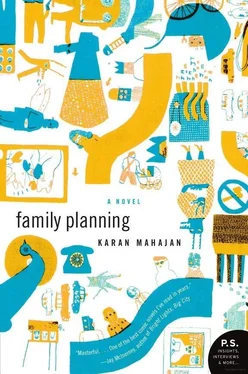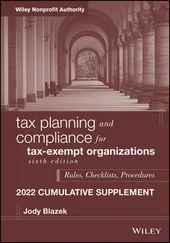Even though he was the only one with the slightest iota of idealism? Who actually did anything? Who took the smallest bribes?
There was no credence in his party members’ views. They were full of shit, cow dung, specifically.
From his office, he promptly called Sankalp Malik, the one minister who’d sat quietly through the Meeting of Pay Scales.
“Look Sankalp,” he said, “I am serious. I didn’t say anything at the meeting because why should I cause a big scene? I am a low-key sort of person. I keep in shadows. I am the dark horse. But let me tell you this much. I am thinking about withdrawing support and taking a good chunk of this party with me. I am being repeatedly insulted. This is hardly the way to treat a coalition partner.”
“Ahuja-ji. I completely understand—”
“But how, HAND-IN-HAND?” said Mr. Ahuja, cracking his wrists on the table.
Sankalp was adamant. “No, no, no. You are mis-understand-ing. It is definitely bad you were not cc-ed on the mass e-mail that was sent to all ministers.”
“Vineet sent it, correct? I know what is happening. Believe me, I know. Personal rivalry is being allowed to interfere with daily functioning.”
“Look, Ahuja-ji,” said Sankalp, clearing his throat. “If you will allow me to say. I think this is a terrible business that has been meted out. But Vineet did not send the e-mail. Subhash-ji did. And he explained to me why you were not included. I think there is a perception you are too close to the SPM. That anything you are told, you will tell the SPM—”
Rakesh said, “Yes, of course. I am the SPM’s lover. I forgot that aspect.”
“No. I scolded Subhash-ji! On your behalf!”
“She has given birth to my children.”
“Ji, it is not my perception but the perception of others.”
“Punning like a poet now?” Rakesh said. He’d heard perception of others as the conception of mothers.
“Han-ji?” asked Sankalp.
“Never mind. Thanks for your help.”
Shit. He put the phone down. So there was no doubt whatsoever. He’d made a terrible mistake by handing Rupa the deranged resignation letter (with the Riot Stock Exchange Bill enclosed!), promising her his support over the Mohan Bedi fiasco, then double-crossing her. She was probably tearing up the insulting letter right now . Then Rakesh remembered his career-long mantra: Anyone who keeps flattering no matter what — them I keep. Yes, that was the key: he needed to find a way to flatter the SPM. He needed to undo all the damage he’d inflicted on himself. He needed to win back the SPM’s sympathies. But how?
Should he name his next child after her? That was the sort of thing that flattered Rupa no end. It would bother Mrs. Ahuja too: she had always wanted a baby named, inexplicably, Chintoo — why, she screamed it out during each delivery — and now she’d have to wait. Let her wait. Rakesh was not looking forward to his upcoming term of cohabitual celibacy with her either. The next six months he would have to watch Sangita’s body dome into a temple of Ahuja worship, the breasts suspended like twin bells that you ring upon entering a shrine, but he would be stopped at the threshold, shamed by Arjun. He’d sit outside on the bed, begging for arms — just to be held. Sangita would look away, cold, while his children discussed their father’s lust between bouts of homework. In his abdomen he felt the tug of a dead muscle.
“Sir!” said Sunil Kumar.
“Yes? What is the matter? What happened? What happened?”
“I told you I am burning that wasp’s nest!”
So that was the smell that had been keeping him awake. So that was the vague directive Sunil Kumar had issued minutes before, gesticulating out of the window. Mr. Ahuja had assumed it was something to do with the wiper-slashes of pigeon shit on his window, a problem Mr. Ahuja always solved by simply leaving the window open, which in turn sent Sunil into geometrical raptures about the exact angle at which a bird would have to excrete in order to hit Mr. Ahuja’s ministerial desk dead-center.
Now a huge gust of orange buzzed through the window: wasps tornadoed around curls of smoke. Mr. Ahuja shielded his head in panic— close the window! — and Sunil Kumar freed a square of fluorescent light onto the ceiling by flinging open the top of the photocopier. The wasps (moving always in regressive spirals, as if pushing against wind) descended hungrily on the flashing plasma of the photocopier and were instantly squashed as Sunil Kumar clapped the white flap down on their bodies. Seconds later, a white sheet of paper speckled with crushed exoskeletons emerged with a satisfying whirr from the machine. Sunil Kumar grabbed the evidence, made for the door, held it open for Mr. Ahuja, and both of them panted into the corridor — unharmed.
“SUNIL! This is hardly a time to do these things. You know I am getting late — does this have to be done today?”
“Sir, forgive me — the wasps were making this their headquarters too. Sometime I had to kill them. I got on a ladder when you were resigned and burned them. So long it has still taken. Can you imagine? The bastards were sitting inside even as it was burning…”
Mr. Ahuja wasn’t listening and couldn’t hear anyway. From the large bay windows of the corridor, he was aware of a sound that had a much lower register than the collective buzzing of wasps. He looked out to the road in front of the ministry.
Nearly two hundred middle-aged women — armed with silver spoons and plates — were chanting something and moving slowly in the direction of the Ministry of Prime-Time, a massive slab of exposed concrete. Rakesh leaned out of the arched bay window and was assailed by a trade wind’s-worth of coconut hair oil; he felt faint. The woman four stories below walked like Sangita — thumping loosely from side to side, each step like a tree being uprooted, then caught in some kind of environmental debate and thrust back in just a few centimeters ahead. Mr. Ahuja placed his palms on the cool bricks and ran his fingers down the rough crevices between them. To watch a crowd eat away and corrode the city’s infrastructure, to feel — even from a distance — the liters of sweat being lost for a ridiculous cause and to rise several stories above the conical boom-range of the loudspeaker, this seemed to Mr. Ahuja to be the point of living. He always wanted to be this close to mass action. He wanted to join this noncooperation movement. He wanted, for a moment, to tell these women that he — yes, he —would be the new Mohan Bedi, that he would negotiate the steps of the ministry and become the first man to join the Aunties, and in truth, he’d only be doing it for the crowd. Perhaps that was why TV had no appeal for him; when he was on TV giving interviews, the masses watching were abstract glitches and sparks on antennas jutting illegally from rooftops all over the country. He couldn’t feel them. So he focused his vision now on the bobbed heads and the sagging banners — and that was when a face turned up at him in a flash and became Sangita. Or he thought he saw Sangita. She had been right there. He leaned farther out of the window, aware of a wasp having snipped at his neck. There, between the woman who was carrying a little boy on her shoulders and the other one who was talking on her cell phone and winding her dupatta around her fingertip even as the rest of the women screeched insults at the Ministry of Prime-Time. Would Sangita dare come out into this heat and risk a stampede when she was carrying his child? Would she actually forklift and airdrop her large self into the scene of such elbow-to-elbow action?
A thread of mango in his teeth tantalized his tongue; his fingers were striped with the pressure marks of skin against brick. He knew the answer was no —Sangita never even visited the vegetable market — but he felt the same unease he felt when he sat up at night with a great twitch in his left leg, the traffic outside a pulmonary roar, and remembered that Sangita could easily betray him and tell Arjun the secret whenever she wanted. At that moment his thoughts would go dense and sticky; he’d look at her half-open mouth and the expanding whorl of a polio injection on her shoulder and remind himself that she owed him everything, that in all these years he’d never sunk into true cruelty, that despite her ugliness he’d never sent her packing off to Dalhousie or confronted her parents or headed out in search of the girl he’d actually been shown on that beautiful and hopeful day in the hills months before the wedding that ruined his life.
Читать дальше












